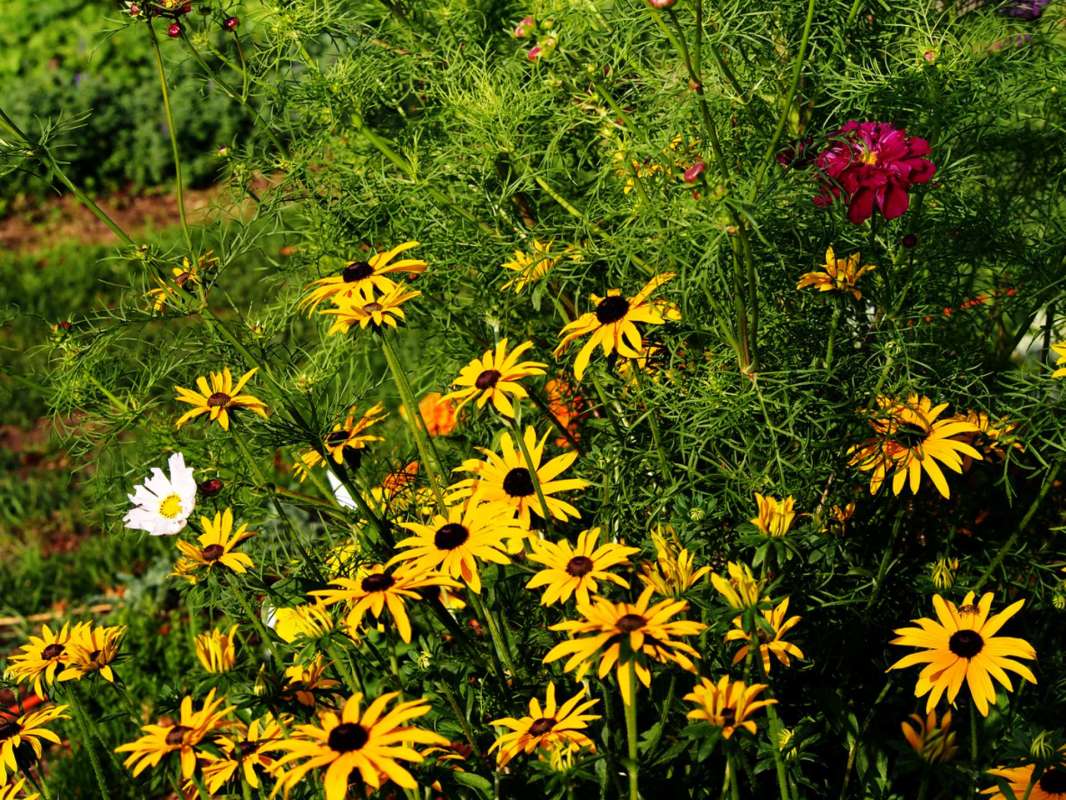A Jacksonville, Arkansas, resident has fallen foul for a second time of city officials, who are demanding that he cut back his native lawn to match his neighbors.
Frank Swift originally won his case against the city of Jacksonville last year when a judge agreed that his wild meadow was "cultivated" and therefore qualified for an exemption for "cultivated flowers, gardens, and/or landscaped areas."
But in April last year, the city revised its ordinance to remove that exemption and has again issued a note of violation to Swift, insisting that he mow his lawn.
For over 10 years, Swift allowed a wild meadow to flourish in his front yard, where native wildflowers like milkweed, coneflower, and buttercups, and trees like pine and maple have bloomed.
But one neighbor, Bart Gray Jr., took issue with Swift's street-facing meadow and told the City Council in May 2022 that it should be mowed to resemble the neighborhood's other manicured gardens.
Swift's garden was said to be in violation of the nuisance code, which prohibits the growth of "noxious plants, weeds, plant growth, undergrowth and/or vegetation" over 8 inches high.
On the contrary, the plants in Swift's garden are not "noxious," but an example of rewilding that homeowners can do in their gardens.
Botanists from the Arkansas Master Naturalists identified 70 types of plants in Swift's meadow in 2022 and noted that such biodiverse habitats allow multiple caterpillar species to multiply, providing a vital food source for birds.
Planting wildflowers native to the U.S., like the coneflower, also reduces water use — and, by extension, bills — because they need less maintenance to grow well.
The manicured green lawn that has long dominated American gardens is extremely water-intensive — so much so that Colorado is paying its residents to replace their lawns with drought-resistant plants like buffalo grass.
This type of landscaping is called xeriscaping, where gardens are remade with desert plants and rocks to reduce the need for irrigation.
In addition to lowering water usage, Swift's native plant garden creates an invaluable refuge for pollinators like bees and butterflies, which play a crucial role in our ecosystem by aiding in the pollination of many crops essential to our food supply.
Even rewilding or xeriscaping a small section of the garden can improve biodiversity and water reductions.
Redditors were quick to condemn Jacksonville's position, which clashes with multiple municipalities' push toward sustainable gardening.
"No nature allowed in the Natural State," wrote one. "City officials are changing laws just to punish a citizen that is trying to keep part of their property natural."
"Land of the free unless you want to decide what to plant in your own garden," another vented.
"The entire city reversed an ordinance for ONE meadow," another added. " ... I feel so bad for this guy. What a valuable expense of taxpayer dollars, right there."
Join our free newsletter for easy tips to save more, waste less, and help yourself while helping the planet.









